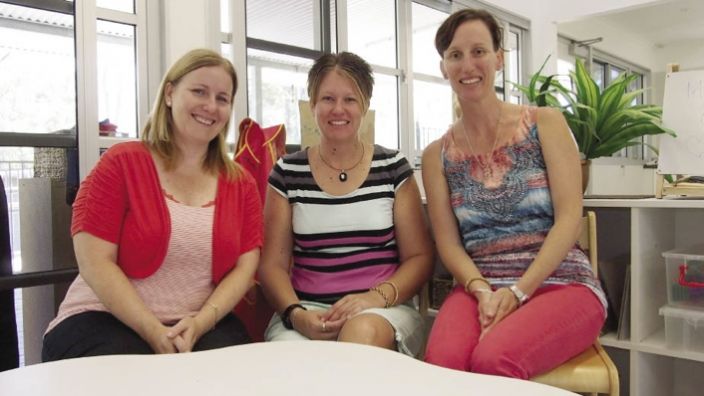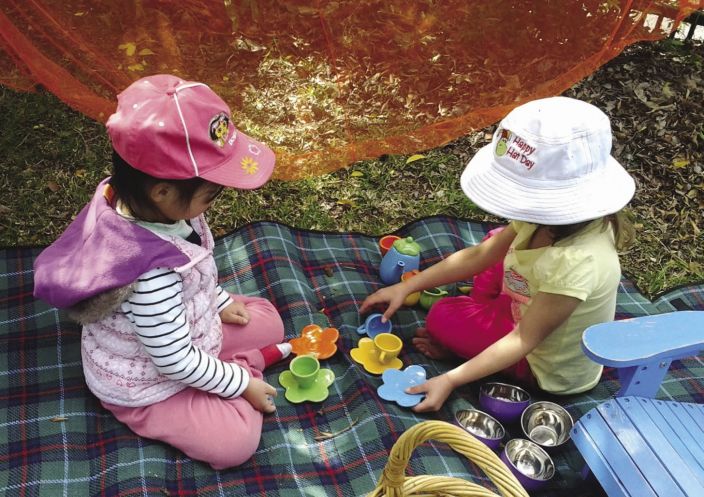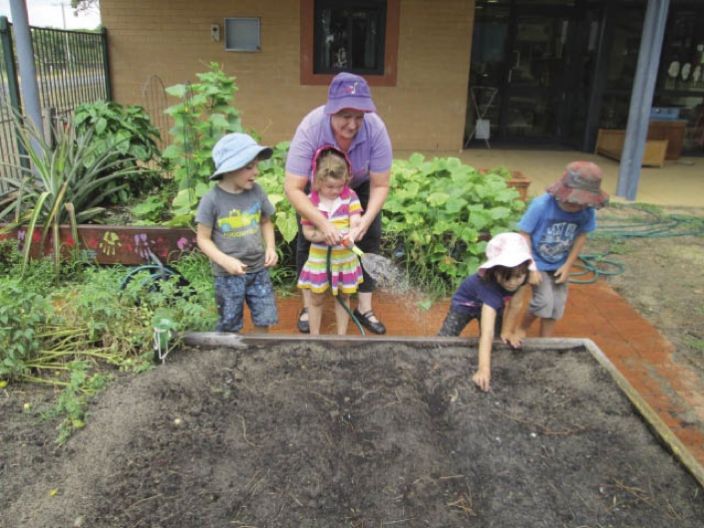
From left to right: Alana Ryall, Sandy Gorton and Janelle Borgges.
Beneficial process
The floors of Augusta C&K Kindergarten in Augustine Heights, Ipswich are clean and tidy. Coloured pencils sit in cups, shirts are laid out and posters with children’s names and photos line the wall as the staff prepare for their first week of kindy for 2014.
In 2013, Director Janelle Borgges, with Assistants Alana and Sandy, ensured Augusta Kindergarten achieved “Exceeding the National Quality Standards” under the National Quality Framework (NQF).
Janelle has been the Director/Teacher at Augusta Kindergarten since its opening in 2012. She spoke about what exceeding the standards meant for a centre of just one year old.
“When we first found out about the NQF we really weren’t sure what to make of it,” says Janelle “Would it be like the previous system of accreditation or something very different?”.
Janelle says that despite it being a new framework, there was plenty of information available to navigate her way though.
“The information from the NQF website, as well as the further help provided from C&K, made the whole procedure a lot less intimidating, even though it was our first time and in some senses we were flying blind.
“But that is not to say it wasn’t hard work. A lot of hours went into paperwork, and gathering evidence, but I truly believe the process of preparing for assessment has benefitted us,” she says.
Assistant Alana was pleased that in contrast to the previous system of accreditation, the requirements of the NQF involved more collaborative and reflective processes that allowed her to consider how she could improve.
“Under the previous system an inspector would come out and not say much. We often didn’t know how we did or if what we were doing was any good. Sometimes it could be quite intimidating.
“But this time the inspector asked us not only what we were doing, but why.”
Janelle says she took every measure to involve parents in the NQF process.
“We told them what it was, and how they could contribute. As part of our submission we even included the results of a survey that we asked parents to fill out.”
Janelle, Sandy and Alana all agreed that while the qualification process did take a lot of time and effort, that very robustness and stringency meant that these standards had substance and contributed to recognition and respect for early childhood educators.
Janelle points out that although they do display their rating proudly in the window of the foyer, it isn’t what impresses the parents or encourages enrolments.
“It is the development and growth of their children, the communication and collaboration with parents that we maintain through newsletters and presentations that leads people to know that we a great kindy, and that I and my assistants are good at what we do.
“The parents of our children have always been impressed by our results preparing children for school, helping them to learn to socialise and grow. Our Exceeding rating helps cement in parents’ minds that we are educators.”





































































































































